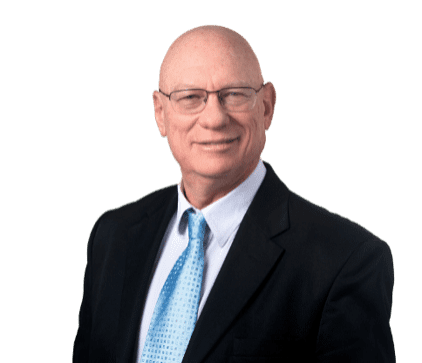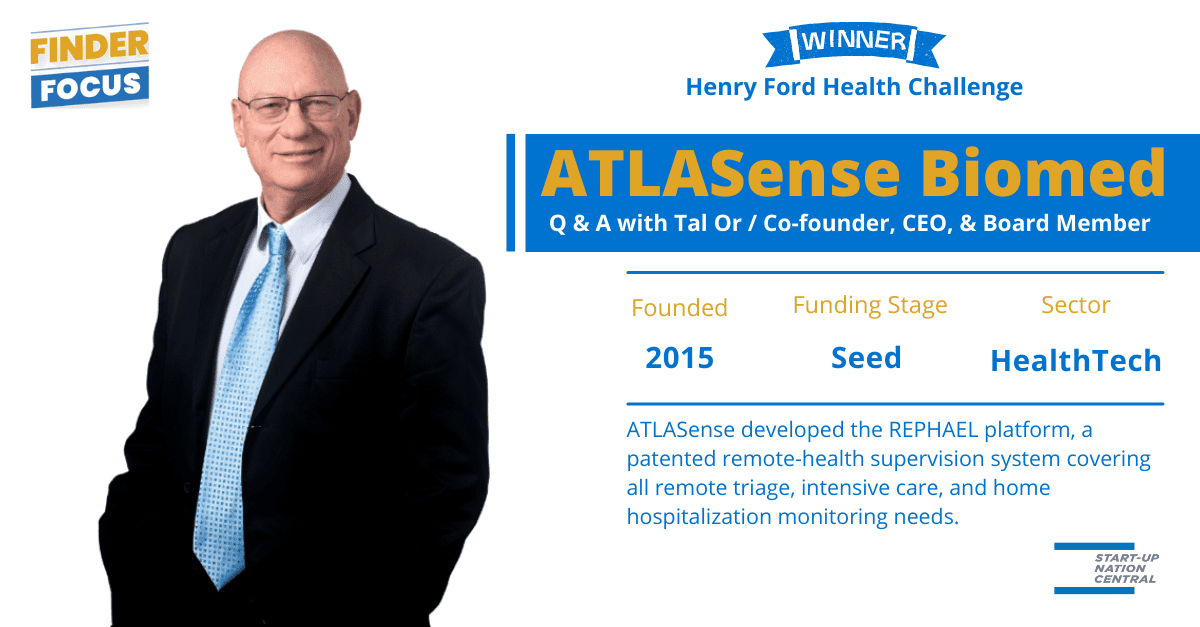
ATLASense Biomed developed the REPHAEL platform for hospital-to-home care, offering continuous, comprehensive health surveillance for an unlimited period. The platform gives healthcare providers actionable clinical information that improves patient outcomes through early detection of deteriorating health conditions.
The company recently won the Henry Ford Health Challenge, a competition run in partnership with Start-Up Nation Central that attracts and develops solutions that address the world’s most pressing healthcare problems.
With more than 25 years of entrepreneurial work in the high-tech and IT industry, Co-founder Tal Or drives the vision for ATLASense. He recently spoke with Start-Up Nation Central to discuss his entrepreneurial journey, the company, and future:
Start-Up Nation Central: Tell me about ATLASense Biomed.
Tal Or: Founded in 2015 by Dan Atlas and me, ATLASense developed the REPHAEL remote health surveillance platform aimed to improve patient outcomes by early detection of changes to many health conditions. It is based on the PolyMonitor™ – a chest-worn device, which, once attached to the patient, continuously collects an unprecedented array of physiological signals and transmits them to our cloud server. Through artificial intelligence and machine learning, these multiple streams can help develop new predictive analytic algorithms and applications for better preventive care.
Simultaneously, deeper analysis is performed to detect various clinical conditions and provide early warning, enabling better clinical decisions and preventive care, and improving the financial bottom line of the healthcare providers.
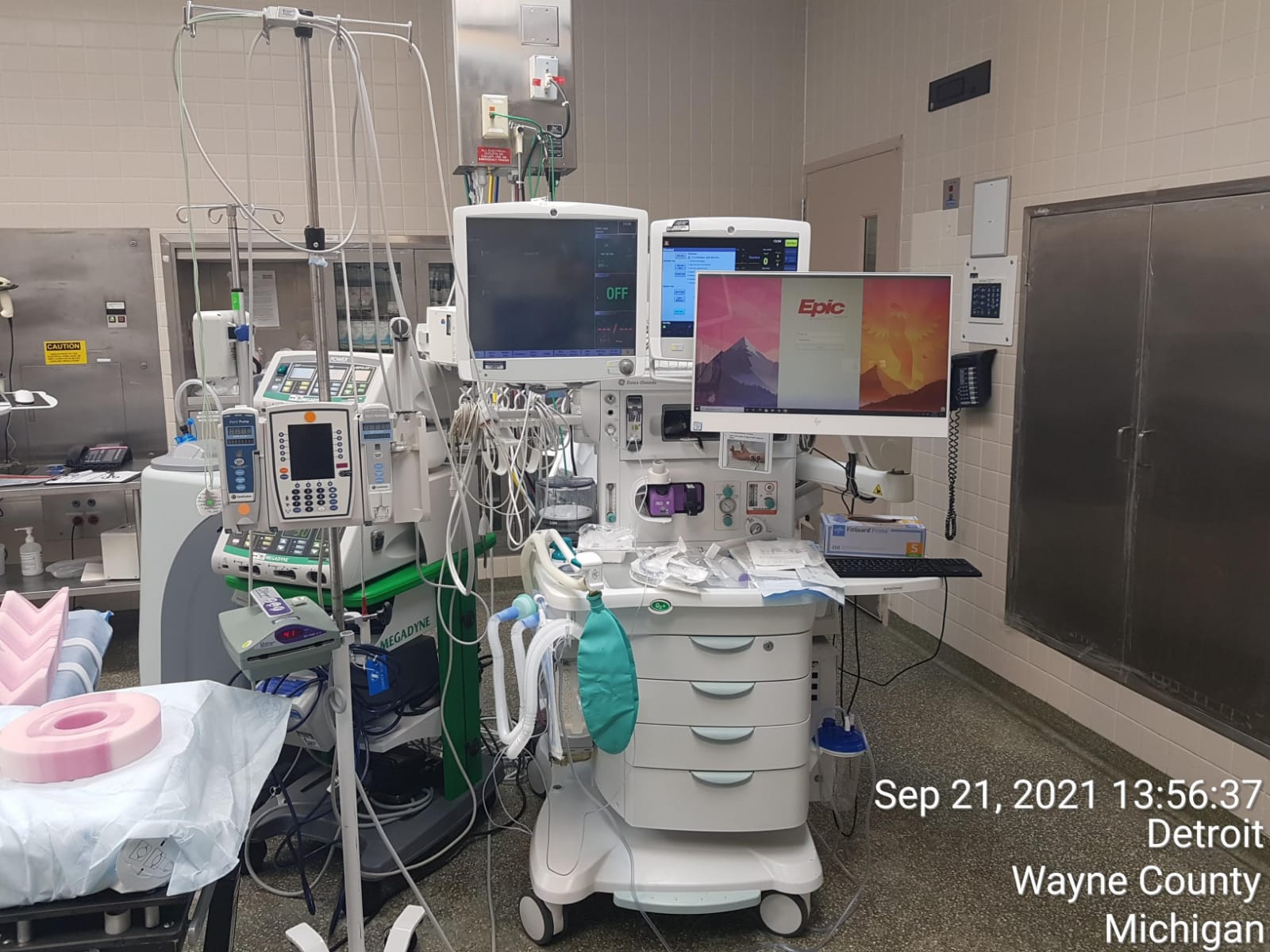
“I thought there had to be a solution to cover all of my mother’s complicated conditions but found many limited products. This inspired me to build a solution that could help many diseases with just one device!”
SNC: What inspired you to create your company?
Tal: I had a personal need for peace of mind for my chronically-ill mother, who was living alone and often had life-threatening events that I could not know about until it was nearly too late. I thought that if I was aware of warning signs earlier, perhaps the worsening of her conditions could have been averted. I thought there must be a solution to cover my mother’s condition. This inspired me to build a way to help many diseases with just one device! Most devices are limited in functionality or monitoring period. We developed our own sensors and integrated them with others into one reusable device.
SNC: There were no existing solutions for what you needed?
Tal: There are hundreds of remote monitoring devices for dozens of different physiological parameters; however, no single one paints a complete cardiovascular and respiratory clinical picture that enables doctors to reach solid and safe clinical decisions from afar.
Until the pandemic, there was very little recognition of this need.
The COVID pandemic, combined with the aging population, was a wake-up call for health systems worldwide to embrace remote patient monitoring (RPM) and hospital-at-home (H@H) technologies. Yet unfortunately, remote patient monitoring is still very slow to be adopted as a standard of care.
SNC: What was your Eureka moment?
Tal: I scoured the market for a solution for my mother for two years but was unsuccessful. I realized that the reason is that physicians and healthcare providers either have too much raw information or the information they have is not actionable. To make a safe clinical decision, they must spend a lot of time carrying out the analysis by themselves, and they simply don’t have the capacity to do it.
Only in 2014, after having learned about the products and the market, I met Dan Atlas, a world-renowned veteran in medical sensors and monitoring device engineering who had already participated in over 300 projects and had several patents implemented commercially by a known medical device company.
Since both of us fully understood the need for an ICU-grade wearable for remote clinical decision-making, we knew what we should do and co-founded ATLASense.
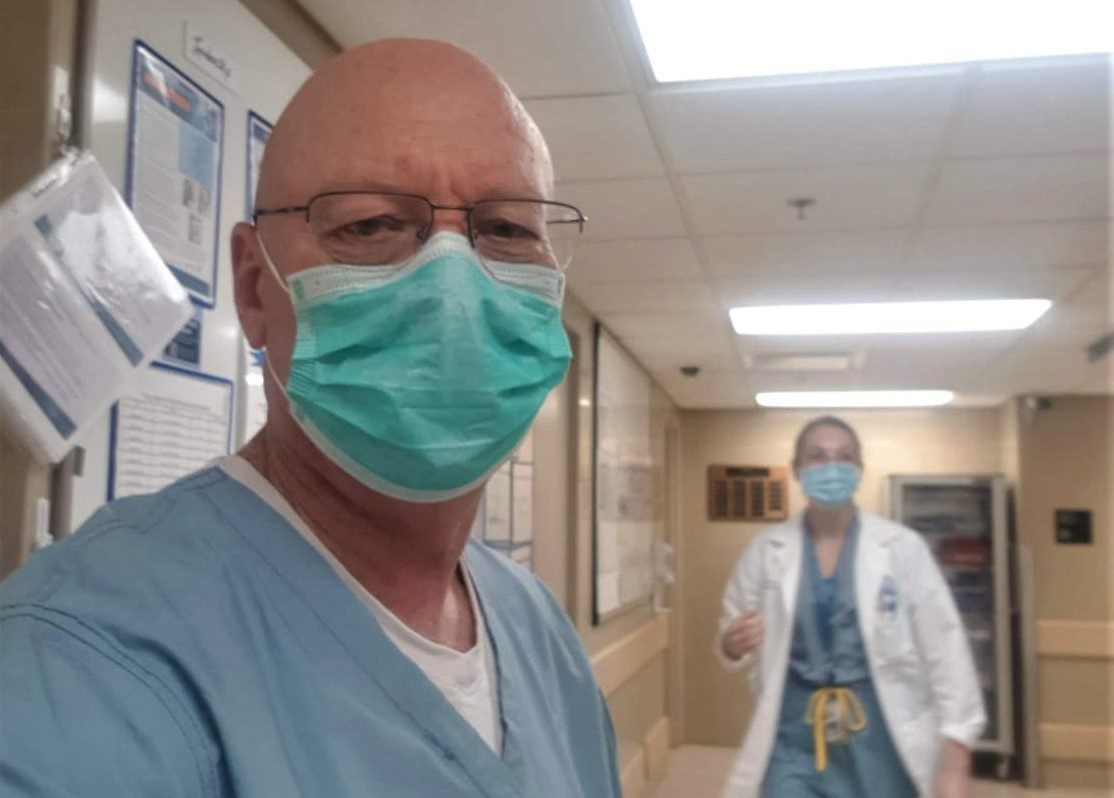
“The COVID pandemic and the aging population have been a wake-up call for health systems worldwide to embrace remote patient monitoring…”
SNC: What were your first steps?
Tal: The first step was to meet with various potential customers and users to learn about their point-of-view and fully understand the operational, clinical, and economic issues and processes.
The second step was to create a winning business model that will be affordable for everyone, so we decided to adopt the subscription business model of Data as a Service, which is similar to the business model used by cable TV services for video content, without charging for the set-top-box device.
Then, I built the complete financial and business plan and validated it with various potential customers. Only then did we move to the development stage and finally recruited an “A-team” to realize the plan.
I am extremely proud of our multi-disciplinary dedicated team, who are involved as partners, for doing the maximum to make it a great success.
SNC: When will you feel that you’ve “made it.”
Tal: Saving even a single person’s life by using the REPHAEL system will be a great success. I would like to see the world adopt our solution as a standard of care for health monitoring and remote follow-up. We want to impact the entire health system by making this more effective and affordable.
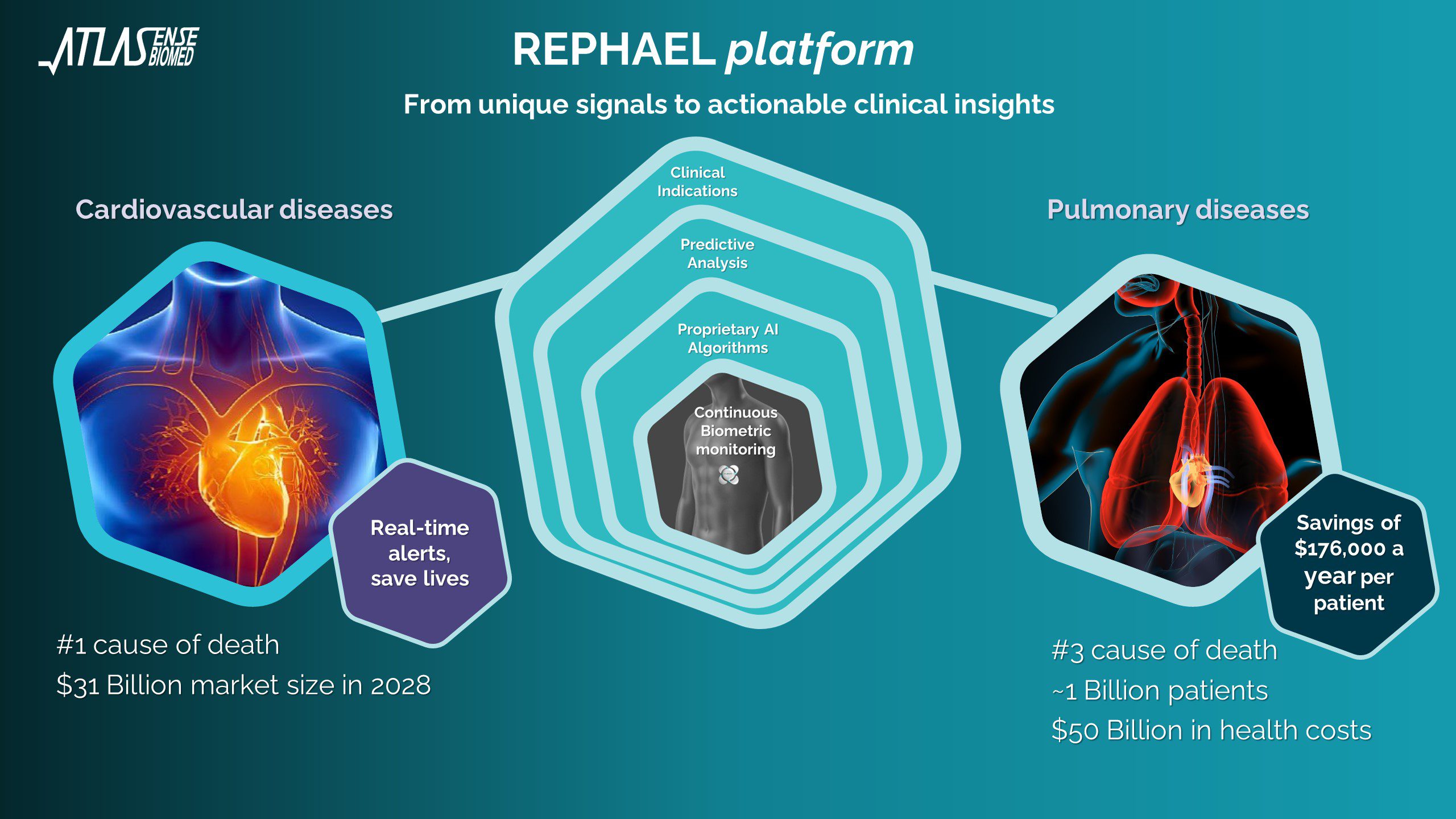
SNC: How did it feel to win the Henry Ford Health Challenge?
Tal: It was exciting and touching when we won! Finally, we felt recognized for what we are trying to do and the need we are trying to solve: a solution that would enable healthcare providers to efficiently and fully monitor patients from admission to the hospital all the way home.
SNC: How will winning the Henry Ford Health Challenge help you progress?
Tal: We’ll use the winnings to validate our technology and integrate more information and new analytics. I hope that the successful clinical trial we did with Henry Ford Health System will lead to a purchase agreement or even a commitment to purchase in the US market.
SNC: What help do you need right now?
Tal: The first step is to secure more funding. I hope the current round will be completed by the end of this year. For the next round, we’ll need to establish the right partnerships. We need local strategic partners who will adopt our product and be our ambassadors.
SNC: What do you think investors and corporate executives should know about the Israeli innovation ecosystem?
Tal: Israelis are risk-takers by nature. Unfortunately, as a country, we’ve had a lot of experience with tough odds, and we’ve had to overcome that with outside-the-box thinking. It’s become a point of pride for us. We don’t accept things as they are. We challenge the status quo, don’t take no for an answer, and don’t let fear of failing, stop us.
SNC: What can you recommend to our global audience regarding things to do in Israel?
Tal: There isn’t any one specific thing to recommend – there is so much to do and take in when visiting here. Israel is an amazing place. You just have to come here, get in touch with the land, the people, the nature, and the many cultures. Take it all in, and I’m sure you’ll come away with more than what you bargained for.
SNC: Advice to entrepreneurs?
Tal: You have to be able to experience vast disappointments and get comfortable feeling crazy. When you try to describe your idea to others, sometimes it will feel almost impossible because they often don’t get it. The name of the game is trusting in yourself, especially when it comes to raising money for the great idea that the world needs.
SNC: What do you want your legacy to be? Like, what would you want your great great grandkids to know about you?
Tal: That my team and I contributed our best efforts to improve people’s lives and the overall healthcare systems and that I was a “Mensh”.
Check out ATLASense Biomed on Start-Up Nation Finder
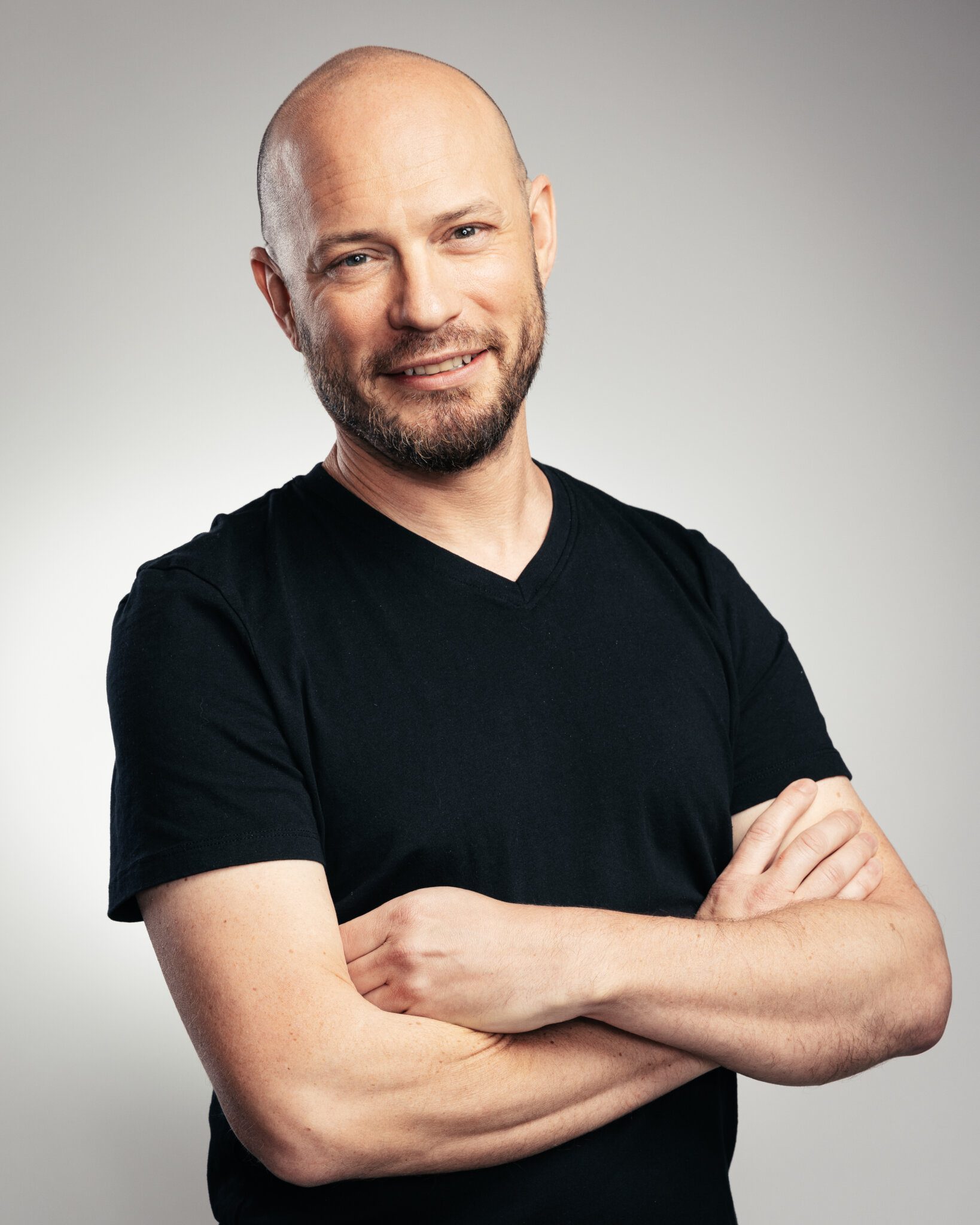
Phillip Stark is the Senior Creative Copywriter at Start-Up Nation Central, a non-profit organization that strengthens Israel’s innovation ecosystem and connects it to global challenges and stakeholders.
